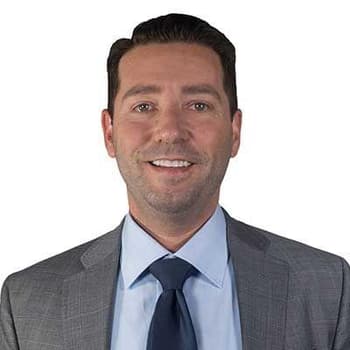Addiction Treatment Adjusts to COVID Regulations in the Pacific Northwest
Written by Melissa Carmona
& Medically Reviewed by Sam Rosenthal
Medically Reviewed
Up to Date
Last Updated - 6/17/2022
View our editorial policy
Addiction Treatment Adjusts to COVID Regulations in the Pacific Northwest
Addiction treatment centers have quickly adapted to ensure patients avoid coronavirus transmission while in treatment with new safety procedures and telehealth options.
Substance abuse and mental health concerns are rising throughout Washington and Oregon as a result of the COVID-19 pandemic. Fortunately, mental health and addiction treatment centers have quickly adapted to ensure patients avoid coronavirus transmission while in treatment. Many mental health care providers are also creating telehealth platforms that allow patients to receive life-saving care from the comfort of home.
Mental Health and Substance Abuse in Washington and Oregon
The pandemic damages mental health because it can easily create stress, fear, isolation and anxiety. Mental health concerns and substance abuse rates are already problems throughout the Pacific Northwest, primarily due to seasonal affective disorder (SAD). SAD emerges as fall and winter seasons bring inclement weather and fewer daylight hours. Combined with the pandemic’s far-reaching effects, suicide risks are predicted to be highest in Washington between October and December 2020.
Before the pandemic, around 24% of people in Washington with mood disorders like depression used drugs or alcohol to self-medicate. Around 10% used alcohol to cope with anxiety, and 21% used substances for coping with PTSD. Higher rates of mental health disorders often mean higher rates of substance abuse, and it’s believed that substance use will rise dramatically as the pandemic continues.
Rising Drug Overdoses in 2020
Compared to the year before, Oregon saw around a 70% rise in overdose deaths from April to May 2020. Opioids like fentanyl and heroin accounted for 73% of overdose deaths in May alone.
These substance abuse statistics are likely due to the pandemic and other current events that can affect mental health, such as civil unrest and political tension. Oregon is already the worst-ranked state for rates of mental health disorders, while Washington is ranked 46th. The rising overdose rates and prevalence of mental health concerns point to a greater need for accessible treatment services and recovery resources.
How Addiction Treatment Centers Are Adapting to COVID
The best addiction treatment centers have already rolled out new changes to increase accessibility and improve patient safety and security. One of the biggest and most effective changes has been an increase in telehealth services. By meeting with a clinician, therapist or counselor remotely, patients can receive therapy, counseling and medication-assisted treatment without needing to visit a health care facility.
Many rehab centers, including The Recovery Village Ridgefield, have now adjusted policies within their facilities to further protect their patients. These include:
- Reducing the number of patients who live onsite
- Conducting health screenings for clients and staff
- Requiring face masks to be worn
- Suspending guest visitation
- Offering telehealth services
- Increasing sanitation and cleanliness standards
What To Look For in Addiction Treatment During Coronavirus
It’s always important to choose a rehab facility that offers a full continuum of care, including medical detox, inpatient, outpatient and aftercare services. However, during the pandemic, it’s perhaps equally important to find a rehab that works to improve sanitation and safety for patients. When possible, people may also want to opt for telehealth services instead of in-person visits.
The Recovery Village Ridgefield provides in-person care as well as a telehealth app. This platform connects clients with professional therapists and addiction counselors who can provide life-changing treatment and support throughout recovery. We also help support groups host free virtual recovery meetings via our private online chat rooms.
If you or a loved one is struggling with addiction or a co-occurring mental health condition, The Recovery Village Ridgefield is here to help. Contact us today to learn more about effective treatment plans and programs that can work well for you.
Sources
Centers for Disease Control and Prevention. “Coping with Stress.” July 1, 2020. Accessed November 3, 2020.
Washington State Department of Health. “Statewide High-Level Analysis of Forecasted Behavioral Health Impacts from COVID-19.” August 2020. Accessed November 3, 2020.
Schreiber, Evan. “Overdose deaths rise 70% in Oregon during pandemic, OHA says.” KATU 2 ABC, October 23, 2020. Accessed November 3, 2020.
Mental Health America. “Ranking The States.” 2020. Accessed November 3, 2020.
Samuels, Elizabeth; et al. “Innovation During COVID-19: Improving Addiction Treatment Access.” Journal of Addiction Medicine, May 12, 2020. Accessed November 3, 2020.
View Sources
Centers for Disease Control and Prevention. “Coping with Stress.” July 1, 2020. Accessed November 3, 2020.
Washington State Department of Health. “Statewide High-Level Analysis of Forecasted Behavioral Health Impacts from COVID-19.” August 2020. Accessed November 3, 2020.
Schreiber, Evan. “Overdose deaths rise 70% in Oregon during pandemic, OHA says.” KATU 2 ABC, October 23, 2020. Accessed November 3, 2020.
Mental Health America. “Ranking The States.” 2020. Accessed November 3, 2020.
Samuels, Elizabeth; et al. “Innovation During COVID-19: Improving Addiction Treatment Access.” Journal of Addiction Medicine, May 12, 2020. Accessed November 3, 2020.
Authorship






